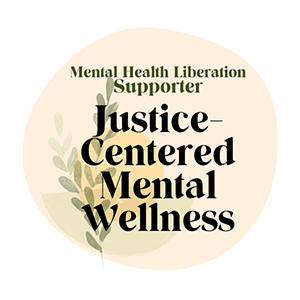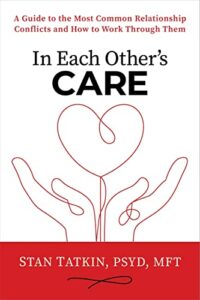Podcast: Play in new window | Download (Duration: 51:56 — 118.9MB)
Subscribe: Apple Podcasts | Spotify | Amazon Music
Conflict in relationships is inevitable – find out the ins and outs of repair for healthy relationships.
We are back with relationship expert, Dr. Stan Tatkin to explore the inner workings of relationships from a biological and societal perspective, and his new book, In Each Other's Care. All humans are complicated creatures and if we spend enough time with each other, it's going to get tense. That part is OK, but what happens after arguing disconnection or tension is what really matters.
Sue Marriott & Dr. Tatkin take a deep dive into addressing conflicts, building secure attachments, and abandoning gender stereotypes for a more inclusive discussion. Follow along to explore healthy interdependence, couples' purpose, and secure functioning.
“A secure functioning partnership works on problems, not each other” – Dr. Stan Tatkin
Time Stamps for In Each Other's Care – Healthy Relationships
5:44 – Dr. Tatkin's view on telehealth & virtual therapy
8:36 – How PACT approaches virtual therapy
16:05 – Understanding procedural memory
19:08 – Break down of insecure attachment
22:53 – What does secure functioning look like?
28:48 – Attachment in polyamorous relationships
37:47 – Exploring healthy interdependence in relationships
44:50 – An example of a couple’s purpose
53:41 – The importance of gender inclusivity when talking about relationships
Resources for today's episode, In Each Other's Care – Healthy Relationships
Stan Tatkin's Website – Information about his practice, sessions
The PACT Institute – Dr. Tatkin's official website
Relationships are Hard, but Why? – Dr. Tatkin's TedTalk
A free excerpt – from Dr. Tatkin's new book
@DrStanTatkin – Instagram account
Dr. Stan Tatkin – Facebook Page
@DrStanTatkin – Twitter account
Dr. Stan Tatkin – LinkedIn account
About our Guest – Stan Tatkin, PsyD, MFT
 Clinician, author, researcher, PACT developer, and co-founder of the PACT Institute. Dr. Tatkin is an assistant clinical professor at UCLA, David Geffen School of Medicine. He maintains a private practice in Southern California and leads PACT programs in
Clinician, author, researcher, PACT developer, and co-founder of the PACT Institute. Dr. Tatkin is an assistant clinical professor at UCLA, David Geffen School of Medicine. He maintains a private practice in Southern California and leads PACT programs in
the US and internationally. He is the author of We Do, Wired for Love, Your Brain on Love, Relationship Rx, Wired for Dating, What Every Therapist Ought to Know, and co-author of Love and War in Intimate Relationships, and the recent, In Each Other’s Care.
If you enjoyed this one then catch our other interviews with Stan Tatkin. He has a great take on applying the principles of relational neurobiology to real life – check it out.
TU121: Redefining the Purpose of Relationships During Quarantine with Stan Tatkin
We support mental health access to those traditionally left out of mainstream healthcare and use a portion of the income we receive from corporate sponsors to do just that! We can only do that with the help of our Patrons – joining as a TU Neuronerd Podsquad premium subscriber, you support this mission and get a dedicated ad-free feed plus occasional very cool and unique study opportunities, reading groups and who knows what else may come! We invite you to join our community. Click here to join!
Click here to view today's episode Transcripts

Please consider giving to Mental Health Liberation
We support mental health access to those traditionally left out of mainstream healthcare and use a portion of the income we receive from corporate sponsors to do just that! We can only do that with the help of our Patrons – joining as a TU Neuronerd Podsquad premium subscriber, you support this mission and get a dedicated ad-free feed plus occasional very cool and unique study opportunities, reading groups, and unique surprises! We invite you to join our community. Click here to join!
Mental Health Liberation is our charity of choice – please consider giving whatever you can to support mental health access for those traditionally left behind and support training for BIPOC therapists.















